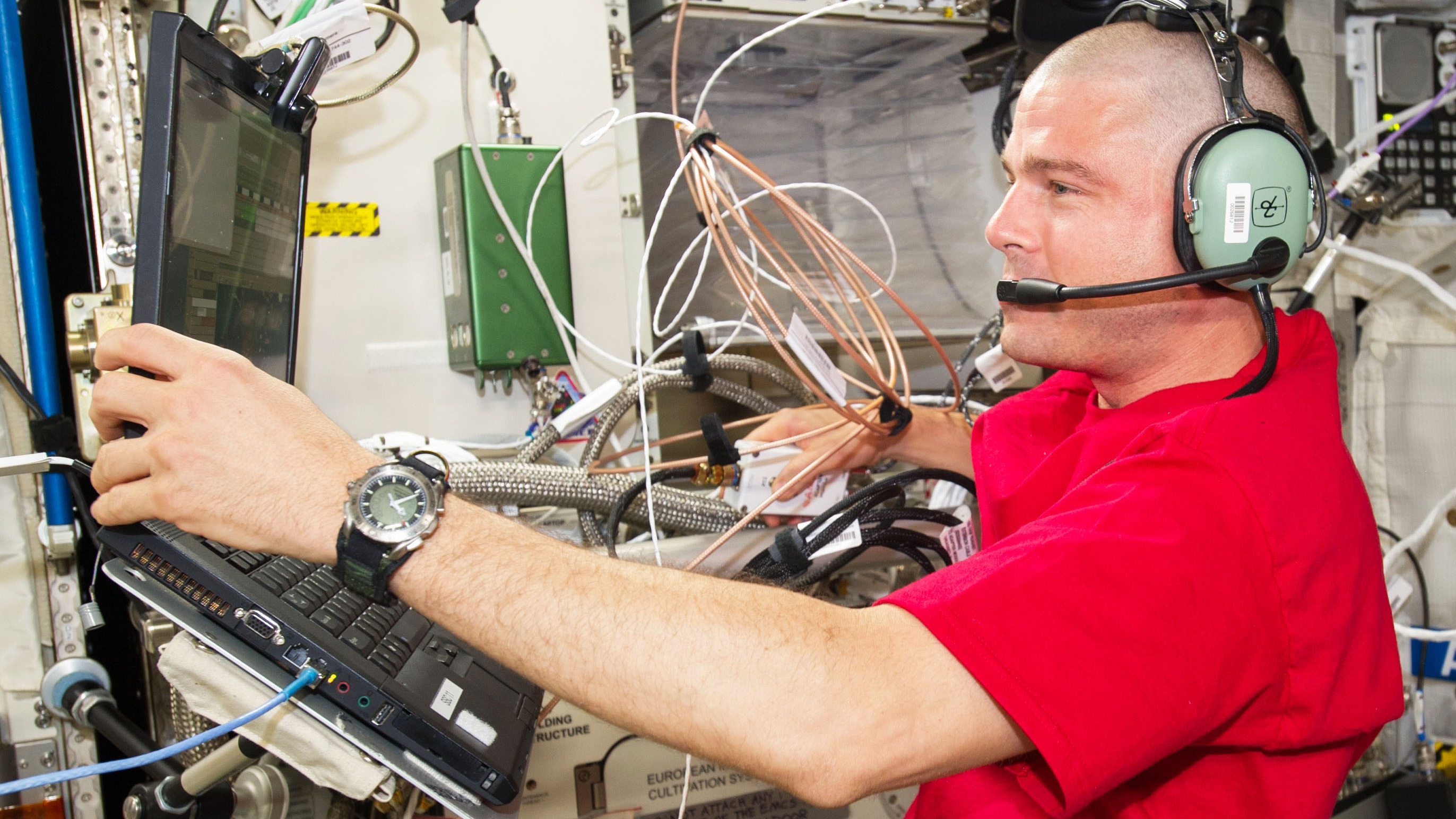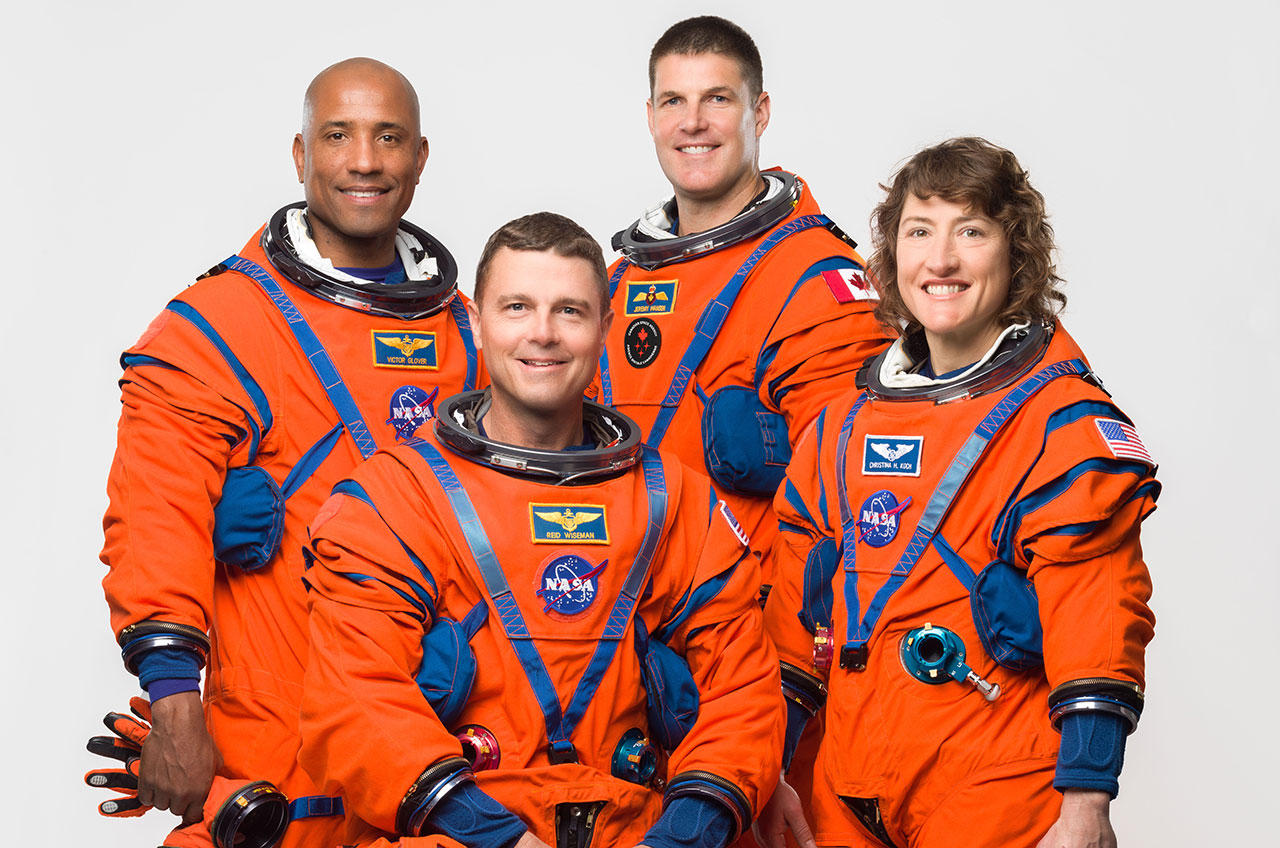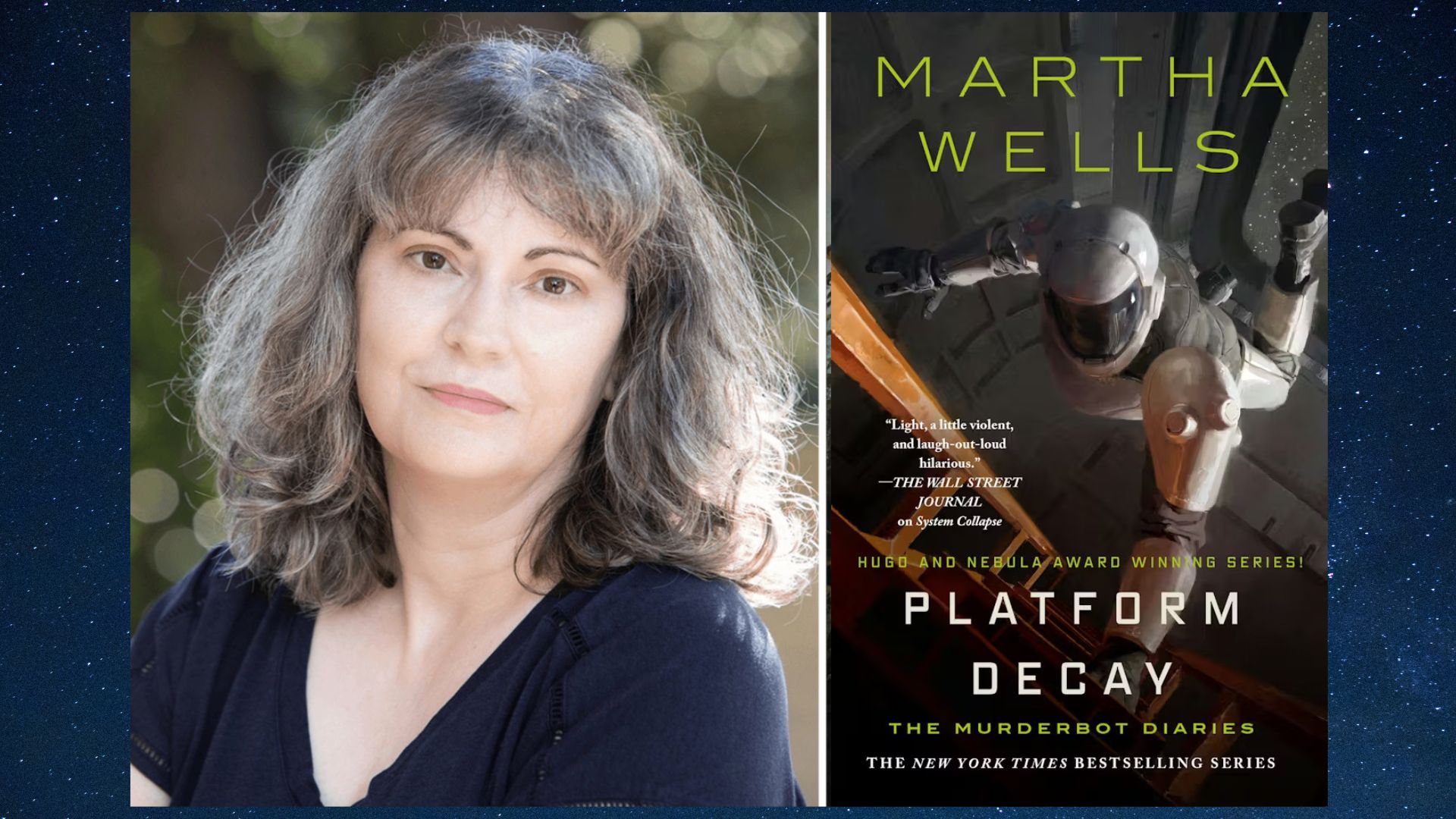NASA astronaut Reid Wiseman, commander of the Artemis 2 moon mission
Wiseman will go around the moon during his second space mission.
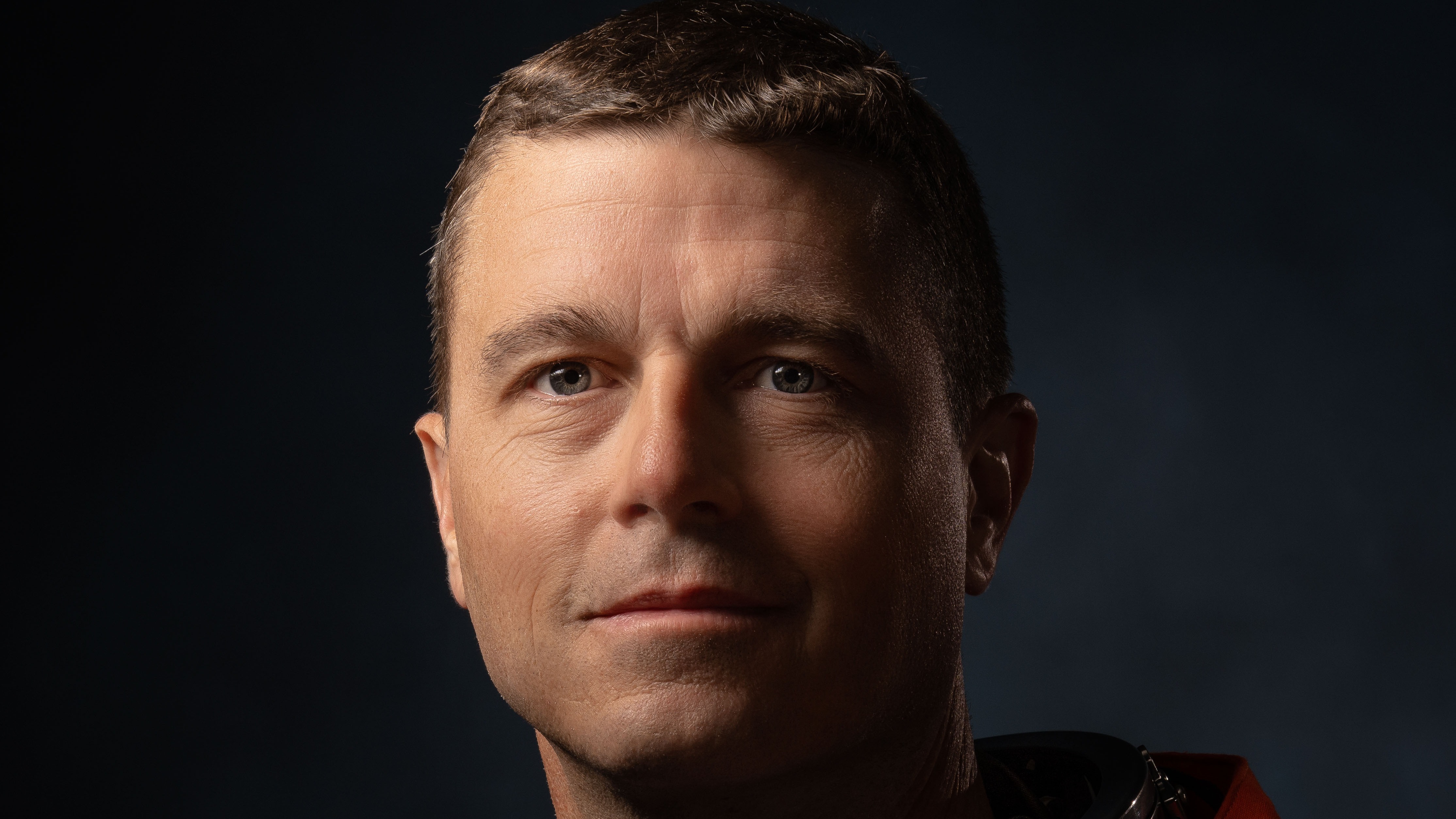
Reid Wiseman is a NASA astronaut that will command the first human moon mission since 1972.
Wiseman will lead a crew of four astronauts aboard Artemis 2, which is scheduled to perform a 10-day mission in November 2024. Joining Wiseman on the round-the-moon mission will be NASA astronauts Victor Glover and Christina Koch, and Canadian Space Agency astronaut Jeremy Hansen.
Artemis 2 will be Wiseman's second mission. He has 165 days of space experience on Expedition 41, which flew to the International Space Station between May and November of 2014. His command of Artemis 2 will be the first moon mission since the Apollo program concluded lunar excursions in December 1972.
Related: Why will NASA's Artemis 2 only fly around the moon, not orbit or land?
Pre-astronaut career and personal life
Wiseman was born in Baltimore and graduated from Dulaney High School in 1993, according to his NASA biography. He earned a bachelor of science degree in computer and systems engineering at New York's Rensselaer Polytechnic Institute in 1997 and has two post-graduate certifications: a master of science in systems engineering from Johns Hopkins University, and a certificate of space systems from the U.S. Naval Postgraduate School.
According to Wiseman, he was thinking about space from a young age but went with aviation first. "When the Challenger disaster happened, that really had a big impact on my 11-year-old mind," he said in an interview with NASA, referring to a space shuttle disaster that killed seven astronauts.
"It got me thinking about NASA, thinking about space exploration," Wiseman added. "I made my parents take me down to KSC [NASA's Kennedy Space Center] to look around."
Breaking space news, the latest updates on rocket launches, skywatching events and more!
Following Wiseman's 1997 graduation, he was commissioned as a reserve officer and reported to Pensacola, Fla. for flight training. He became a naval aviator in 1999 and flew the T-14 Tomcat for Fighter Squadron 101 in Virginia. Later on, he deployed twice to the Middle East with Fighter Squadron Oceana for Operations Southern Watch, Enduring Freedom and Iraqi Freedom.
After attending the U.S. Naval Test Pilot School and graduating in June 2004, Wiseman became a test pilot and project officer at Naval Air Station Patuxent River in Maryland, working in programs such as the F-35 Lightning II, F-18 weapons separation, Ship Suitability and the T-45 Goshawk. Subsequent assignments included Carrier Air Wing Seventeen as the Strike Operations Officer (which included a deployment in South America) and Strike Fighter Squadron 103 in Virginia flying the FA-18F Super Hornet.
Wiseman has two children and his wife, Carroll Taylor, died in 2020 from cancer.
Related: NASA's Artemis 2 commander woke up nervous before big moon announcement
Early astronaut career
Wiseman was at sea when he was told he would be a member of the 2009 NASA astronaut class. He started training at the NASA Johnson Space Center in August 2009 and finished his astronaut candidate training in May 2011, which made him eligible for mission assignments.
He, fortunately, was assigned to a spaceflight almost right away, going on Expeditions 40 and 41 that flew from May 29 to Nov. 9, 2014. The mission took place with what Wiseman says in his biography are "two of his best friends", Maxim Suraev of Roscosmos and Alexander Gerst of the European Space Agency.
The crew finished what was then a record amount of science experiments, and Wiseman himself executed two spacewalks. The first was alongside Gerst, which stowed a failed coolant pump and provided backup power for a mobile transporter responsible for moving the ISS Canadarm2 robotic arm. His second spacewalk, with NASA astronaut Butch Wilmore, replaced a failed power regulator.
In a 2015 recorded talk with Google employees, Wiseman (who was perhaps joking at the time) told attendees that he also set a record for the most weight gain in space. "It was all due to chocolate pudding cake," he said to the laughing crowd. "I had to buy a whole new set of pants."
10 years between spaceflights
Spacecraft for the ISS typically carry three or four people each compared to the previous program, the space shuttle, which sent up about seven astronauts at a time. Fewer people thus fly to space than previously, which often results in long gaps between spaceflights. Wiseman thus will wait about 10 years between spaceflights before flying again on Artemis 2.
Astronauts always have ground duties to work on, however, including serving as capsule commander in Mission Control, performing training activities, supporting other missions, or keeping up proficiencies in skills like flying or spacewalking.
In Wiseman's case, he also served as commander of the underwater NEEMO (NASA Extreme Environment Mission Operations) 21 mission in 2017 and also became deputy chief of the astronaut office in 2017. In 2020 he was promoted to chief astronaut, a position he held for two years. (Chief astronauts by job definition do not fly to space as they are responsible for crew assignments.)
Wiseman was named commander of the Artemis 2 mission on April 3, 2023, in a large ceremony in Houston involving nearly the entire NASA astronaut corps. Two days later, Wiseman and the Artemis 2 crew made an appearance on "The Late Show with Stephen Colbert."
Colbert asked Wiseman why return to the moon, to which Wiseman replied: "We want to see humans on Mars." He also pointed to the influence of the ISS, saying that the long-duration experience there will help with creating permanent settlements on the moon and Mars alike.
Related: NASA's Artemis 2 moon mission: Live updates
Exclusive Reid Wiseman interview
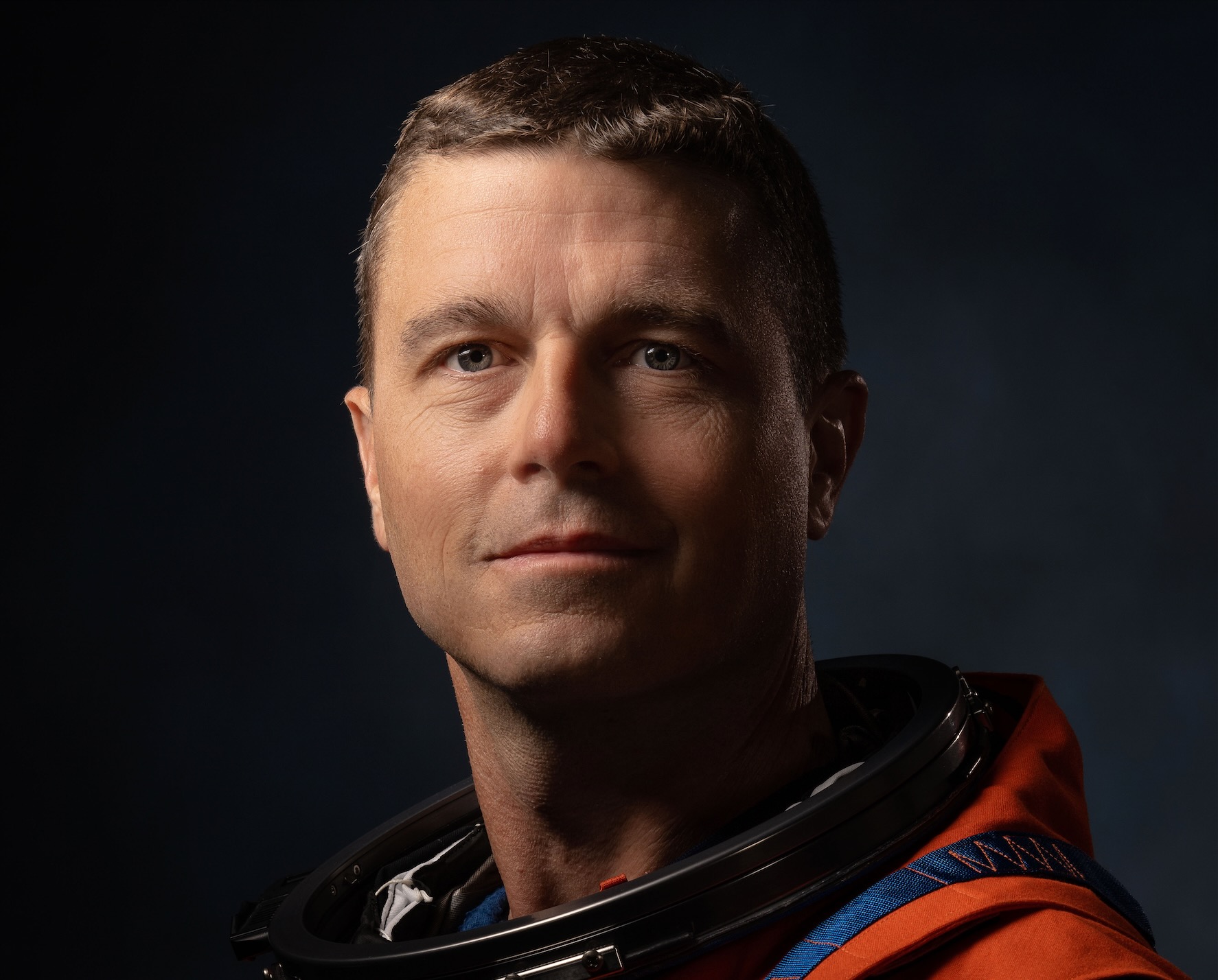
Reid Wiseman is a NASA astronaut who is commander of Artemis 2, which will fly in 2024 or so, and who was flight engineer on Expeditions 40 and 41 in 2014 for 165 days. Wiseman was born in Baltimore and is a naval aviator and carrier ship lander who has served twice in the Middle East. He also served as Chief Astronaut for NASA between 2020 and 2022.
What do you and the crew think about the significance of Artemis 2?
To us, really, it's from our crews on the International Space Station where we feel like we're carrying that torch from them, on forward. Artemis 2 will be about checking out the Space Launch System and Orion to make sure they are ready.
You once mentioned that you landed on aircraft carriers 500 times and were nervous each time. How does that match up with Artemis 2?
I was nervous for the crew announcement, so am I going to be nervous for the mission? Absolutely. But I've always have found that nervousness, that adrenaline, it brings you up and it allows you — if it's managed — it allows you to focus.
As somebody who's flown so many vehicles over the years, what are you most looking forward to with Orion?
I'm looking forward to being those first humans that get to sit on Orion. We are really fired up for that, because we know if Artemis goes to the moon, then humanity goes to Mars.
This exclusive interview was conducted on April 3, 2023 hours after Reid Wiseman was named commander of Artemis 2. It has been edited and condensed.
Additional resources
Follow along with Wiseman's activities in real time at his Twitter account and the NASA Artemis Twitter account. Read more about Artemis 2 at NASA's website.
Bibliography
Talks at Google. (2015, Feb. 23). "International Space Station Expedition." YouTube. https://www.youtube.com/watch?v=h5RqYotnlaE
The Late Show With Stephen Colbert. (2023, April 5). "Why We’re Going Back to the Moon: NASA's Artemis II Moon Mission Astronauts." YouTube. https://www.youtube.com/watch?v=5AC5h4zKU4o
NASA. (2014, May 27). "Pre-Flight Interview: Flight Engineer Reid Wiseman." https://www.nasa.gov/content/pre-flight-interview-flight-engineer-reid-wiseman
NASA. (2023, April 3). "G. Reid Wiseman (Captain, U.S. Navy) NASA Astronaut." https://www.nasa.gov/astronauts/biographies/g-reid-wiseman/biography
NASA. (2023, April 5). Our Artemis Crew. https://www.nasa.gov/specials/artemis-ii/
Elizabeth Howell is the co-author of "Why Am I Taller?" (ECW Press, 2022; with Canadian astronaut Dave Williams), a book about space medicine. Follow her on Twitter @howellspace. Follow us on Twitter @Spacedotcom or Facebook.

Elizabeth Howell (she/her), Ph.D., was a staff writer in the spaceflight channel between 2022 and 2024 specializing in Canadian space news. She was contributing writer for Space.com for 10 years from 2012 to 2024. Elizabeth's reporting includes multiple exclusives with the White House, leading world coverage about a lost-and-found space tomato on the International Space Station, witnessing five human spaceflight launches on two continents, flying parabolic, working inside a spacesuit, and participating in a simulated Mars mission. Her latest book, "Why Am I Taller?" (ECW Press, 2022) is co-written with astronaut Dave Williams.

